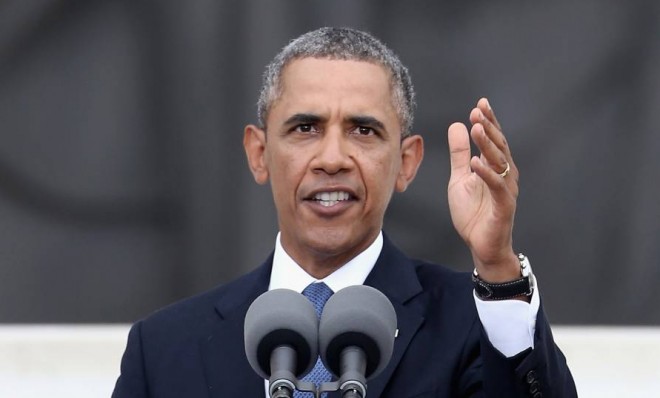Why Obama must strike Syria
It's not about humanitarianism. It's about credibility.

A free daily email with the biggest news stories of the day – and the best features from TheWeek.com
You are now subscribed
Your newsletter sign-up was successful
On Syria, the GOP is a party divided. There are essentially three camps: realists, isolationists, and neocons.
On the neocon side are Sens. Lindsey Graham and John McCain, who are upset that the president has not acted more aggressively. The realists are represented by Sen. Marco Rubio, who is preparing to quietly back the president. And Sen. Rand Paul, ever the isolationist, is arguing that American interests are not on the line in Syria. Speaking to David Gregory on Meet the Press, Paul made his case:
I don't see American interests involved on either side of this Syrian war. I see Assad, who has protected Christians for a number of decades, and Islamic rebels on the other side who have been attacking Christians. [Rand Paul, Meet the Press]
Interestingly, Rand Paul is exactly right that America will not gain a friend no matter which side wins the Syrian civil war. It does not, however, follow that because America has no friends in the conflict that intervention is inappropriate. Quite to the contrary, the minute that the Syrian regime opted to use chemical weapons, the United States' interests were immediately brought into play. The United States has set up a deterrence regime designed to ensure that actors do not consider using chemical weapons, based on the assumption that doing so will guarantee an adverse response from the world's greatest superpower. That deterrence regime would crumble if the United States failed to respond. It would call into question whether using chemical weapons would ever draw a response. That uncertainty raises the chances of their use.
The Week
Escape your echo chamber. Get the facts behind the news, plus analysis from multiple perspectives.

Sign up for The Week's Free Newsletters
From our morning news briefing to a weekly Good News Newsletter, get the best of The Week delivered directly to your inbox.
From our morning news briefing to a weekly Good News Newsletter, get the best of The Week delivered directly to your inbox.
Unfortunately, the administration has done a poor job of articulating why we must act. It should be far more clear: We are not responding to protect the Syrian victims, but rather to protect ourselves. When we respond, it will be for the purpose of deterring future actors from using chemical weapons… which is very much in our interests as a nation.
Humanitarian goals are not always incompatible with more realist-oriented deterrence aims. Indeed, those goals often overlap, which is why one could be forgiven for believing that the United States is about to launch cruise missiles at a sovereign nation for humanitarian reasons. But if you listen closely (and examine all of the parts of the world where atrocities have taken place and continue to take place where we do not intervene), it quickly becomes clear that one goal and one goal only underlies the administration's response to the deployment of chemical weapons, and that is deterrence.
For deterrence to work, there must be a specific prohibited act, and there must be an articulated consequence. Where these things are not clear, deterrence fails. That is why President Obama set out the famous, or infamous, red line. Now that the red line hath been crossed, the only way the U.S. can retain the credibility of its deterrence regime is to act as it said it would. It actually has little to do with Syria and far more to do with sending signals to the rest of the world. As President Obama made clear in his remarks over the weekend, the U.S. is not nearly as concerned about the past attacks as it is the future ones: "This kind of attack… increases the risk that chemical weapons will be used in the future and fall into the hands of terrorists who might use them against us." [Emphasis added]
This is not the language of humanitarian intervention. This is about credibility and, above all else, deterrence. If the United States sets a red line and then does nothing when it is passed, the country's ability to use verbal threats (or promises, depending on how you look at it) to deter certain behavior will be dramatically weakened. Full stop.
A free daily email with the biggest news stories of the day – and the best features from TheWeek.com
Jeb Golinkin is an attorney from Houston, Texas. You can follow him on twitter @jgolinkin.